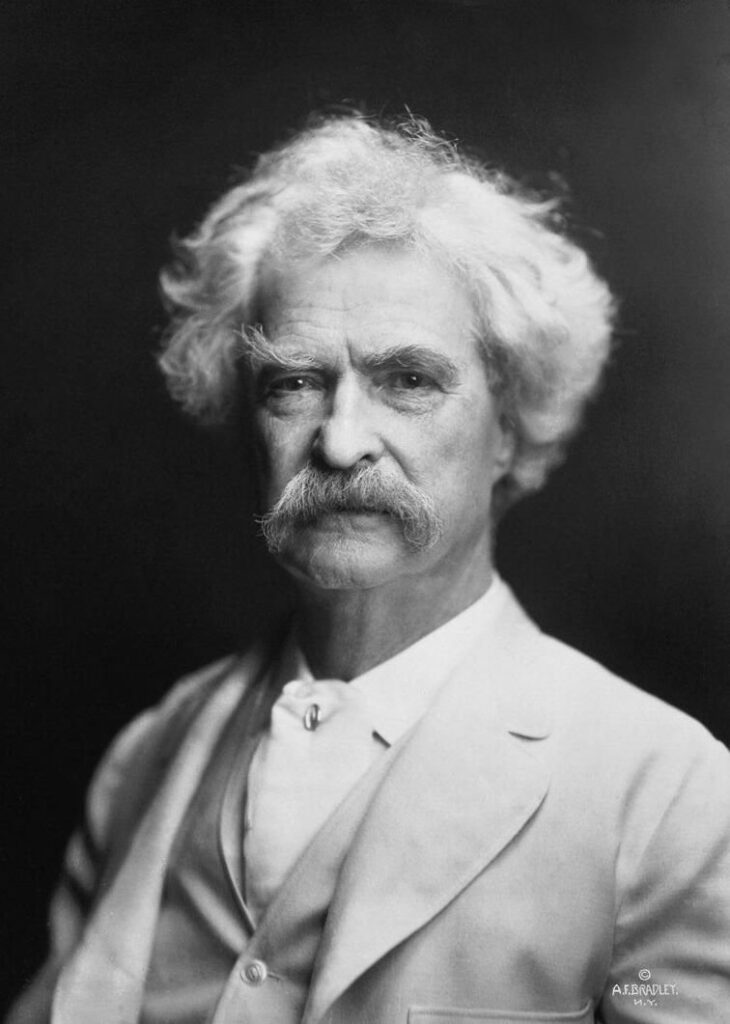Born in 1835, Mark Twain’s early experiences with minstrel shows had a significant impact on him. Growing up in Hannibal, Missouri, during the 1840s, Twain was exposed to minstrel performances, which were a popular form of entertainment at the time. He saw minstrels in Spalding and Rogers’ Floating Palace and Dan Rice’s Circus. He even brought his mother to see the Christy Minstrels in St. Louis, assuring her that they were African missionaries and would provide suitable entertainment.

Mark Twain, humorist
Mark Twain enjoyed these minstrel shows. He found them to be a genuine form of entertainment. In his autobiography, Twain referred to the minstrel show as “the show which to me had no peer” and described it as “a thoroughly delightful thing”. He appreciated the original, extravagant nature of the performances, which he felt were unmatched by other forms of entertainment at the time.
These early experiences influenced Twain’s writing and humor, including his portrayal of African American characters in works like “The Adventures of Huckleberry Finn.” While he enjoyed the entertainment value of minstrel shows, he also grappled with their racial implications.
Mark Twain had mixed feelings about the evolution of minstrel shows. While he enjoyed them in his youth, he later observed their decline in quality. In his 1906 autobiographical dictation, Twain noted that the minstrel show “degenerated into a variety show” with only occasional “Negro acts” included. He lamented the loss of what he considered the “real negro show,” which he had found so entertaining in his earlier years.
Twain’s reflections highlight his recognition of the changes in minstrel shows over time, even as he remained nostalgic for the form of entertainment he had enjoyed as a child.
